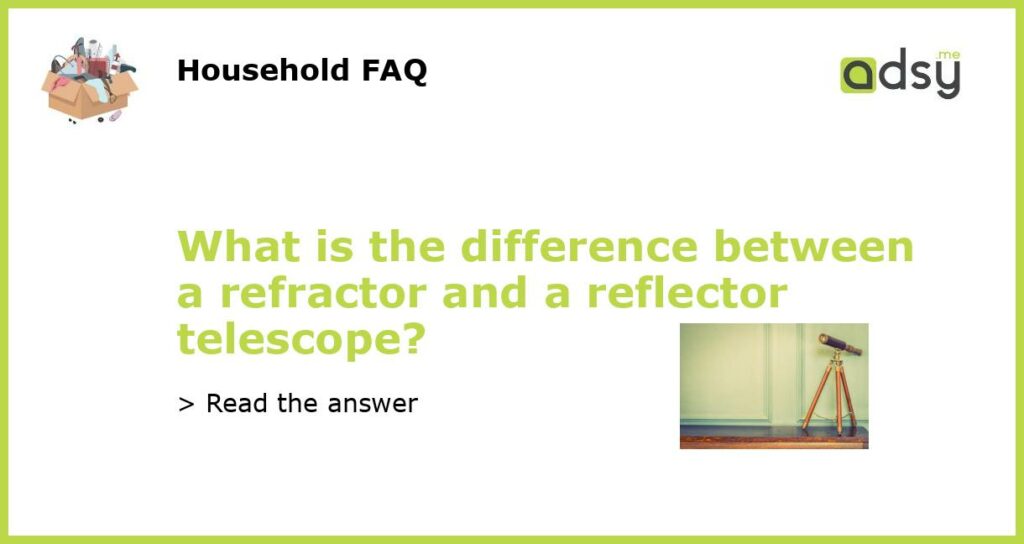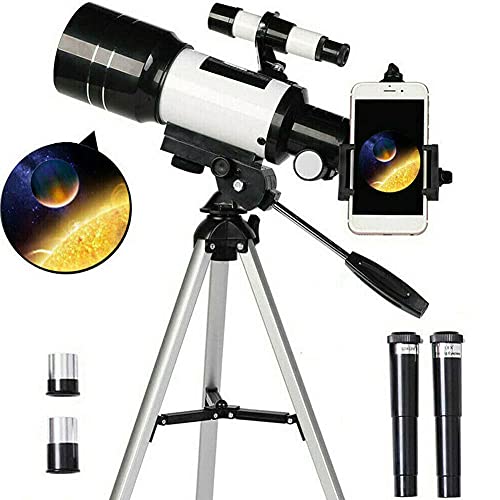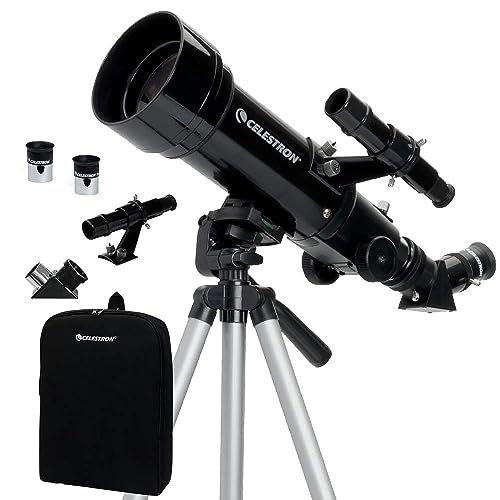Refractor vs Reflector: Exploring the Difference Between Two Popular Telescope Types
When it comes to studying celestial objects, there are several types of telescopes to choose from. Two of the most popular options are refractor and reflector telescopes. While they both serve the same purpose, they differ in the way they gather and focus light. In this article, we will dive into the differences between these two telescope types, guiding you in making an informed decision for your stargazing needs.
Understanding Refractor Telescopes
A refractor telescope uses a lens to gather and focus light. The light enters through the front of the telescope and passes through the lens, which bends or refracts the light to create an image. This image is then magnified using an eyepiece.
The main advantages of refractor telescopes are their durability and low maintenance. Since the lens is sealed inside the telescope, there is less chance of dust or debris affecting the image quality. Additionally, refractor telescopes are typically more compact and portable compared to their reflector counterparts.
However, there are some downsides to consider. Refractor telescopes tend to have a smaller aperture, limiting their ability to gather light. This can result in reduced image brightness and less detail when observing faint objects in the night sky. Additionally, refractor telescopes can be more expensive compared to reflector telescopes of similar specifications.
Exploring Reflector Telescopes
A reflector telescope, on the other hand, uses a mirror to gather and focus light. The light enters the telescope and is reflected off a curved primary mirror. It then travels to a secondary mirror, which reflects the light through the eyepiece to create the final image.
The primary advantage of reflector telescopes is their ability to gather more light through their larger aperture. This makes them ideal for observing dim and distant objects, such as galaxies and nebulae. Reflector telescopes also tend to be more affordable compared to refractor telescopes, making them a popular choice among beginners.
However, reflector telescopes require periodic maintenance. Since the mirror is exposed to the open air, it can accumulate dust and debris, affecting the image quality. Regular cleaning is necessary to maintain optimal performance. Reflector telescopes are also bulkier and heavier compared to refractor telescopes, making them less portable.
Considering Optical Aberrations
Both refractor and reflector telescopes are susceptible to optical aberrations, which can affect image quality. Refractor telescopes are prone to chromatic aberration, which causes color fringing around bright objects. This can be reduced through the use of specialized lenses, such as apochromatic lenses.
Reflector telescopes, on the other hand, are susceptible to spherical aberration. This optical aberration causes images to appear slightly blurred or distorted. However, reflector telescopes can be equipped with corrective lenses or mirrors to reduce spherical aberration and improve image quality.
Choosing the Right Telescope for You
When deciding between a refractor and a reflector telescope, there are a few factors to consider. Firstly, consider your observing goals. If you are interested in observing faint objects and need a larger aperture, a reflector telescope may be the better choice. If portability and minimal maintenance are more important to you, a refractor telescope could be the way to go.
Secondly, consider your budget. Refractor telescopes tend to be more expensive, especially for larger apertures. Reflector telescopes offer more affordable options for those on a limited budget.
Lastly, think about your future aspirations in astronomy. If you plan on diving deeper into astrophotography or advanced observing techniques, reflector telescopes typically offer more flexibility for customization and upgrades.
Conclusion
Both refractor and reflector telescopes have their advantages and disadvantages. Refractor telescopes are durable, low maintenance, and portable, but they may have a smaller aperture and a higher price tag. Reflectors offer larger apertures at a more affordable price, but they require periodic maintenance and can be bulkier.
Ultimately, the choice between a refractor and a reflector telescope comes down to personal preference and the specific needs and goals of the individual observer. Consider your observing goals, budget, and future aspirations in astronomy to make an informed decision that will bring you years of stargazing enjoyment.






